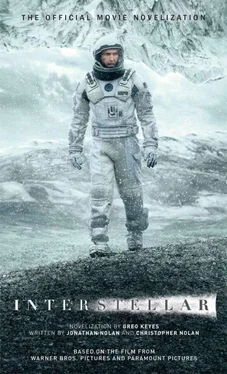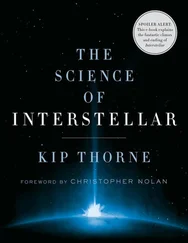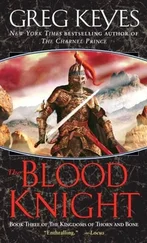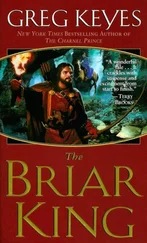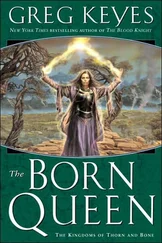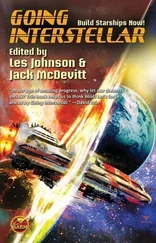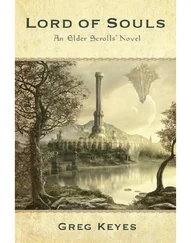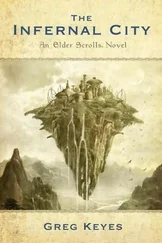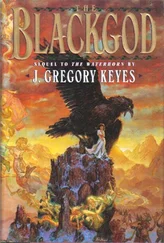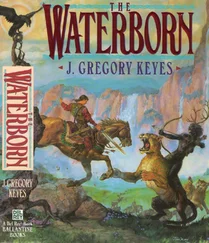She closed the panel.
“You might have to decide between seeing your children again… and the future of the human race.” She smiled, but there was nothing happy or friendly about it.
“I trust you’ll be as objective then,” she finished.
* * *
Murph stood with Tom, watching the field burn. Or, rather, the corn. Because Murph suddenly saw that each plant was its own fire—an incandescent stalk giving itself, spark by spark, to the dark black boil above the light, driving the smoke pointlessly toward the heavens. For a moment she comprehended each of them as filaments in a bulb, flames in a lantern, superheated rods of metal, an alien forest on a distant world. Each plant the maker and center of its own immolation, each burning alone. To say the field was burning was to miss what was really happening. A field was an abstraction. A single plant was not.
It was a life, being sacrificed so that others might survive.
Then the stalks came apart like paper, the updraft shredding some into rising shards, others slumping and crumbling into glowing piles; then that illusion faded, too. Soon there would be no corn, no field. Only carbon and dust, inseparable in their lifelessness.
“We lost about a third this season,” Tom said. “But next year… I’m gonna start working Nelson’s fields. Should make it up.”
Murph wanted to shake him, to make him understand that it would never be “made up.” But what was the point?
“What happened to Nelson?” she asked.
The expression on his face suggested she probably didn’t want to know, so she didn’t press it. This place, its people, the house she had grown up in—it all seemed so remote, and a little unreal to her now.
Tom started for the house, so she followed him. Behind them, the field continued its cremation.
* * *
Murph tried to appear interested in her food that evening, as Tom and Lois made small talk about the farm, and their six-year-old, Coop, sent her grins and made faces at her. The little boy reminded her of his namesake, in a lot of ways. Maybe more than he reminded her of Tom.
“Will you stay the night?” Lois asked. “We left your room like it was. My sewing machine’s in there, but…”
Murph studied her plate, pushing the food around. She liked Lois well enough, and she was certainly a good partner for Tom—dependable, sturdy, compassionate. Beyond that, Murph didn’t know her that well. She kept her visits short, and beyond the subject of farming, they didn’t have a lot of common ground.
“No,” she said, preparing an excuse. “I need to…”
Her gaze wandered toward the upstairs, then back to Lois, and she knew she didn’t want to lie to her.
“Too many memories, Lois,” she said.
Lois nodded in understanding.
“We may have something for that,” Tom said, as he and Coop started to take the dishes into the kitchen. As Coop took Murph’s plate, he began coughing—an awful, deep-chested cough.
The boy must have seen the concern on her face, because he started grinning at her.
“The dust,” he told her. Like it was nothing. As if being sick was just part of it these days, like a stubbed toe or a bloody nose. Normal childhood stuff no one could do a thing about.
Was that how Tom saw things? He might. Otherwise he would have asked her if she could do anything. Even if he didn’t really understand what she did, he knew she had access to science and medicine that most folks didn’t.
“I have a friend who should have a look at his lungs, Lois,” she said, as Tom and Coop went into the kitchen.
Lois nodded, and seemed about to say something when Tom came back in with a bottle of whiskey and sat down. Murph frowned briefly, but didn’t say anything.
Outside, she saw clouds of dust, rolling across the twilight plain.
* * *
On the drive back, churning across the same battered road she traveled with her father all those years ago, Murph wondered about Lois’s reluctance to discuss the idea of Coop seeing a doctor. Was she afraid Tom would see it as some kind of concession—an admission that he couldn’t provide everything his son needed? Or worse, would it force him to admit—to himself as much as anyone else—that things were getting worse?
But it wasn’t just Coop. It was getting worse for everyone, she knew. More people were getting sick—and staying that way. What had happened to Nelson? It was Tom who didn’t want to talk about that.
Projections showed that respiratory ailments were on the rise both in number of the afflicted and the severity, and dust was only part of the problem. Elevated nitrogen levels were taking their toll on human health, as well—directly and indirectly. In the seas, excessive nitrogen was causing widespread algae blooms and huge pockets of hypoxic waters, especially in shallow environments where reefs had once thrived. That, added to the climatic changes that had shifted major currents, was driving the greatest marine extinction since the Permian period—which was to say in the history of the planet.
Once the seas were dead, or mostly so, it would only be a very brief matter of time before what was left of the terrestrial ecosystem crashed. Life itself wasn’t in danger—bacteria, for instance, would continue to thrive. But an environment capable of supporting human life? That could be numbered in less than a handful of decades. Maybe. If they were lucky.
Not that most people knew any of this. If you listened to the news, things were just about to turn around. “Any day now.” Only she and a relative few others knew the truth. Without plan A, everyone on Earth was going to be dead in a generation. Two, at best.
She had spent all of her adult life dealing with the big end of that, with trying to save the race. But here she was at the other end of things, watching her nephew hack up his lungs. What if Coop, like his brother Jesse, didn’t survive long enough for plan A to begin?
She didn’t have to let that happen, whatever Tom did or didn’t believe. She could do something about it.
Suddenly she was distracted by a noise, and realized that the radio was trying to get her attention.
* * *
Doctor Getty met her as soon as she arrived, and started hustling her down the corridor.
Getty was a pleasantly boyish fellow. She liked his eyes, and his smile was nice, too. He wasn’t smiling now, though. His eyes were full of concern—and worse, compassion. They said what he wasn’t quite willing to vocalize.
“He started asking for you after he came to,” Getty explained apologetically, “but we couldn’t raise you…”
When they reached the room, she felt a little faint. Even bound to his wheelchair, there had always been something robust about Professor Brand, an energy that kept him going. You could see it in his eyes, hear it in his voice.
Now, shockingly, she saw that it was gone, or almost so. He seemed tiny in the hospital bed, dwarfed by the machines monitoring him and keeping him alive. When she reached his bedside, she could barely hear his breathing.
“Murph? Murph,” he murmured.
She took his hand.
This isn’t happening , she thought. I’m not ready for this.
“I’m here, Professor,” she said.
“I don’t have much life…” He gasped for another breath. “I have to tell you…”
“Try to take it easy,” Murph said.
“All these… years. All these people… counted on me.”
“It’s okay, Professor,” she reassured him.
“I let… you all… down.”
“No,” Murph said, close to crying. “I’ll finish what you started.”
He looked up at her, tears welling over the failing light in his eyes.
Читать дальше
